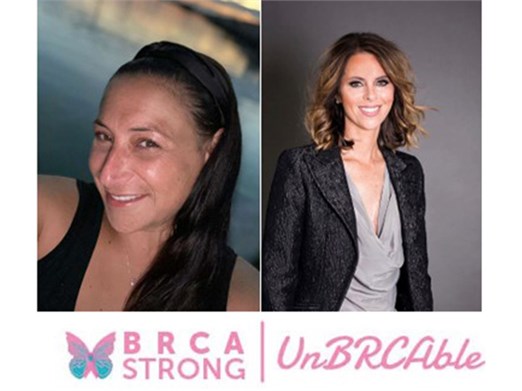Breast Care Professionals: Who’s Who?
What do all the experts you are meeting during your treatment do? Find out with our guide.

You will meet many experts in different medical disciplines before, during and after your breast cancer treatment. Here we explain the role of different professions you might come in contact with, such as oncologists, radiologists and Breast Care Nurses.
Oncologists, anesthetists, radiologists. From the moment you are diagnosed, you will meet many different breast cancer specialists and therapists throughout the course of your treatment. At first, the names and professions can be confusing and overwhelming. To help you prepare, here is a brief overview of the experts you may deal with during diagnosis, therapy and follow-up. Since breast cancer treatment programs are personalized for patients, you may not meet them all. We have sorted the most common occupational groups into alphabetical order for your convenience.
Anesthetists and Anesthesiologists
Anesthetists (nurses) and anesthesiologists (doctors) give patients a general anesthetic so that they are not conscious during their surgery. During the operation, they ensure the patient’s oxygen level, heart rate and blood pressure remain at safe levels. Anesthesia specialists also work in the areas of pain management and palliative medicine.
Breast Care Nurses
Breast Care Nurses are breast cancer specialists (also known as clinical nurse specialists or breast care nurse navigators). They are trained to advise and care for women with breast cancer. The breast cancer nurse may be your main point of contact in the hospital and also help with information about services available in the local community.
Breast Surgeons
Breast surgeons are breast cancer specialists and remove cancerous tumors. Depending on the size of the tumor and where it is, the surgeon will remove part of the breast (breast-conserving therapy) or all of it (mastectomy). They also carry out surgical reconstruction, either using an implant or the patient’s own tissue. Some breast cancer surgeons, known as oncoplastic surgeons, reconstructive surgeons, or plastic and reconstructive surgeons, specialize in postoperative breast reconstruction. Often, several surgeons work as a team during breast cancer operations.
Gynecologists
Gynecologists are doctors who specialize in treating women’s diseases and medical conditions. They often find the lump during a routine check-up or confirm the presence of a lump when the patient has noticed it. In such cases, the gynecologist usually refers the patient to radiology for tests to find out if the lump is a harmless cyst or a malignant tumor.
Oncologists
Oncologists are doctors who specialize in the treatment of many types of cancer. They evaluate the tumor using international classification standards and recommend the best course of treatment based on the individual. In addition to choosing treatment programs to cure or manage cancer, they also help women make informed decisions about their care by informing them about chemotherapy, radiation and surgery or other relevant options. They advise on the pros and cons of different treatments and coordinate with other physicians and therapists involved in the therapy.
A medical oncologist specializes in treating cancer with chemotherapy; a clinical oncologist specializes in treating the disease with chemotherapy and radiation therapy.
Pathologists
Pathologists are doctors who analyze tissue samples taken during a biopsy or surgery. They examine this tissue in the laboratory under a microscope to see if the tumor is benign (non-cancerous) or malignant (cancerous). If the pathologist determines that the tumor cells are malignant, they also analyze the sample to find out what type of cancer is present. The course of treatment that is recommended will be based on the results of this analysis.
Physical Therapists
Physical Therapists sometimes work with women who have breast cancer to develop an individualized treatment plan depending on the problems and symptoms experienced. After surgery, they support the patient with breathing and physical exercises to prevent problems from arising and help the individual recover a full range of movement. They can also provide special massages (lymphatic drainage) to prevent or treat secondary lymphoedema (swelling, particularly in the armpit or arm areas).
Radiologists
Radiologists (doctors trained in taking and reading x-rays and scans) are part of the breast care team from diagnosis through treatment. When a breast lump is noticed, it is examined with the help of radiology tests such as mammography, ultrasound or magnetic resonance imaging (MRI). These give visual information about the density, size and composition of the tissue. If the results suggest a tumor is present, a biopsy is usually conducted. Radiology also encompasses radiation of breast tissue and, in some cases, lymphedema monitoring. The aim of radiation therapy is to destroy tumor cells and reduce the risk of recurrence.
Fertility Specialists
Chemotherapy, radiation and hormone therapy can affect fertility. Women who wish to have children after treatment are often referred to specialists at a fertility clinic to discuss all the options available. These include protecting the ovaries from damage during the treatment phase, and freezing embryos (IVF), eggs or ovarian tissue before treatment begins. In order to increase the chance of pregnancy in the future, daily injections of hormones may be given to encourage the ovaries to produce more eggs than normal (ovarian stimulation).
Mastectomy Fitters
Fittings for a breast form (breast prosthesis) are usually done by a trained mastectomy fitter (also called certified fitters or fitting consultants). They offer advice for selecting the best breast form or (partial) breast shaper after a mastectomy or breast-conserving surgery. Among other things, they take your comfort, appearance and lifestyle requirements into consideration.
Medicare and most insurance companies cover the cost of a prosthesis, but require a prescription from your physician.
We offer a directory of certified mastectomy fitters here.
Social Services
Social workers and support staff give information on things such as getting home help, financial matters and general social services available. They are also a good source of information on local support groups.
Wig Fitter
A wig fitter specializes in advising breast cancer patients who lose their hair and need a wig due to chemotherapy (or other reasons). Today, wigs are made from human or synthetic hair.







